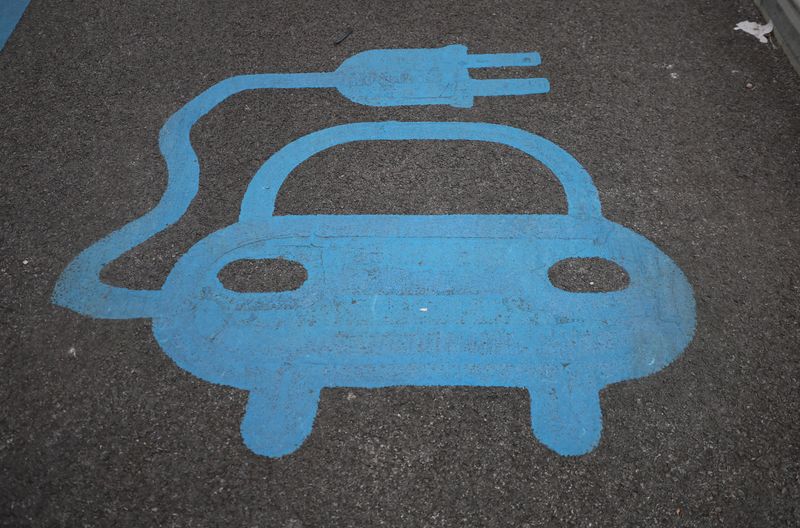By Riham Alkousaa
BERLIN (Reuters) -Germany on Wednesday halted a subsidy scheme less than 24 hours after it was launched due to strong demand for the payments to install rooftop solar panels, storage and charging points, highlighting questions about the effectiveness of one-off subsidies in the switch to green energy.
With a budget of 300 million euros ($317 million) from the transport ministry for this year, the programme offered a subsidy of up to 10,200 euros for homeowners with electric cars to install a photovoltaic system and a charging station.
The exhaustion of the program's funds so quickly raised questions in the solar power market about the effectiveness of one-time market interventions in creating sustainable demand and boosting the switch to renewables.
"On the scale of 33,000 cars in a market where you have 3.3 million new cars per year ... it's not very effective," Philipp Schroeder, chief executive of solar company 1Komma5, told Reuters.
The programme, launched on Tuesday morning, was aimed at boosting the switch to electric cars and reducing the need for public charging stations.
Around 33,000 applications were submitted within 24 hours of launch, meaning the earmarked funds had been exhausted, a spokesperson for KfW bank, which is giving out the funds, said.
The transport ministry announced the program earlier this month and had allocated a total of some 500 million euros for the programme, with 200 million reserved for next year.
The programme was thus disrupting the already-booming market and creating uncertainty as most consumers who were considering installing a solar system with a wallbox may wait for the second part of the subsidy to kick in next year, Schroeder added.
"The message from our side is: Please, please don't make it worse. Just do not come up with any one-time subsidies ever again," he said.
BIGGER WALLETS
The application for the subsidy was open online on Tuesday morning around 0800 am CET and closed at around 2 am on Wednesday, the KfW spokesperson said, adding that the initial application only requires an investment plan, with documents needed within two years of the bank's approval.
The eligibility conditions for the program do not include a maximum household income but do require ownership of a house and an electric vehicle.
"The big share of the population who are tenants are excluded, and those who own apartments are excluded too," Lion Hirth, energy markets professor at Hertie School, told Reuters.
The program was introduced by the ministry of transportation, whose sector has been consistently failing to meet its climate targets.
The transport ministry was not immediately available to comment.
Germany's solar power association BSW said it was not surprised the funds were exhausted so quickly, citing booming demand for residential photovoltaic systems and wallboxes to charge electric vehicles.
Demand for solar power systems more than doubled in the first half of 2022, compared with the year before, and one in six German homeowners are planning to install panels on their roofs, BSW said.
As the cost of electric car charging at home with home-generated solar power falls to less than third compared with purchasing from the grid, some 42% of people installing panels on their roofs would install a wallbox, it added.

A typical 70 square meter residential photovoltaic system could offer electricity for up to 20,000 kilometers of electric travel in addition to powering a four-person household.
($1 = 0.9463 euros)
